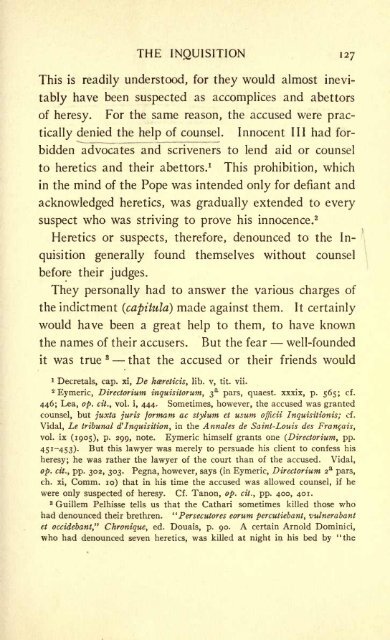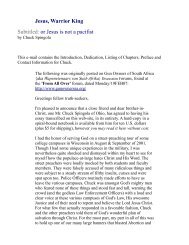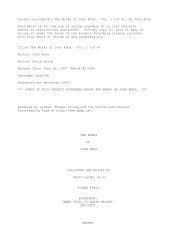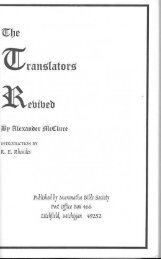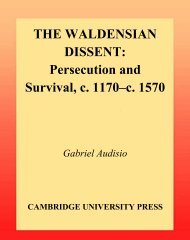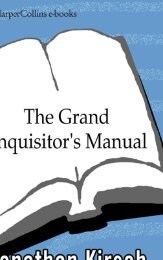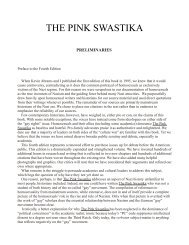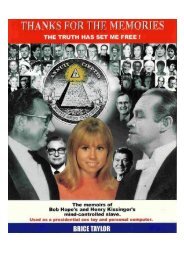Untitled - Shattering Denial
Untitled - Shattering Denial
Untitled - Shattering Denial
You also want an ePaper? Increase the reach of your titles
YUMPU automatically turns print PDFs into web optimized ePapers that Google loves.
THE INQUISITION 127<br />
This is readily understood, for they would almost inevi<br />
tably have been suspected as accomplices and abettors<br />
of heresy. For the same reason, the accused were prac<br />
tically denied the help of counsel. Innocent III had for<br />
bidden advocates and scriveners to lend aid or counsel<br />
to heretics and their abettors. 1<br />
This prohibition, which<br />
in the mind of the Pope was intended only for defiant and<br />
acknowledged heretics, was gradually extended to every<br />
suspect who was striving to prove his innocence. 2<br />
Heretics or suspects, therefore, denounced to the In<br />
quisition generally<br />
before their judges.<br />
found themselves without counsel<br />
They personally had to answer the various charges of<br />
the indictment (capitula) made against them. It certainly<br />
would have been a great help to them, to have known<br />
the names of their accusers. But the fear well-founded<br />
it was true 3<br />
that the accused or their friends would<br />
1 Decretals, cap. xi, De hareticis, lib. v, tit. vii.<br />
2 Eymeric, Directorium inquisitorurn, 3 a pars, quaest. xxxix, p. 565; cf.<br />
446; Lea, op. cit., vol. i, 444. Sometimes, however, the accused was granted<br />
counsel, but juxta juris formam ac stylum et usum officii Inquisitionis; cf.<br />
Vidal, Le tribunal d? Inquisition, in the Annales de Saint-Louis des Franfais,<br />
vol. ix (1905), p. 299, note. Eymeric himself grants one (Directorium, pp.<br />
451-453). But this lawyer was merely to persuade his client to confess his<br />
heresy; he was rather the lawyer of the court than of the accused. Vidal,<br />
op. cit., pp. 302, 303. Pegna, however, says (in Eymeric, Directorium a a pars,<br />
ch. xi, Comm. 10) that in his time the accused was allowed counsel, if he<br />
were only suspected of heresy. Cf. Tanon, op. cit., pp. 400, 401.<br />
3 Guillem Pelhisse tells us that the Cathari sometimes killed those who<br />
had denounced their brethren.<br />
^ Persecutores eorum percutiebant, vulnerabant<br />
et occidebant," Chronique, ed. Douais, p. 90. A certain Arnold Dominici,<br />
who had denounced seven heretics, was killed at night in his bed by "the


